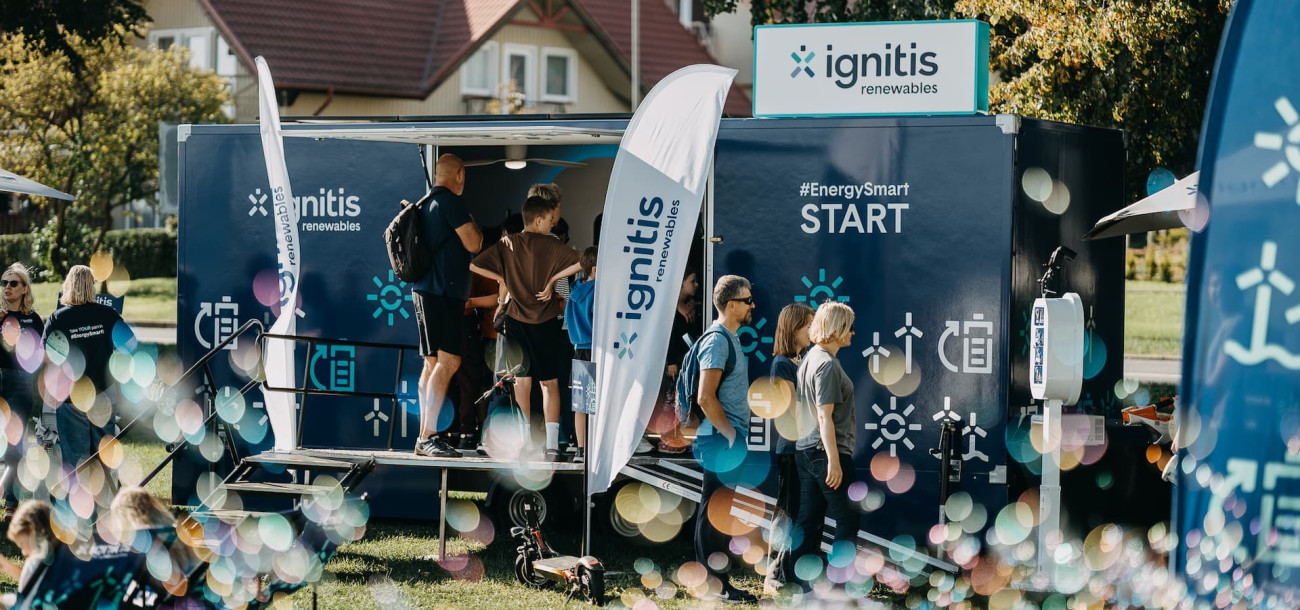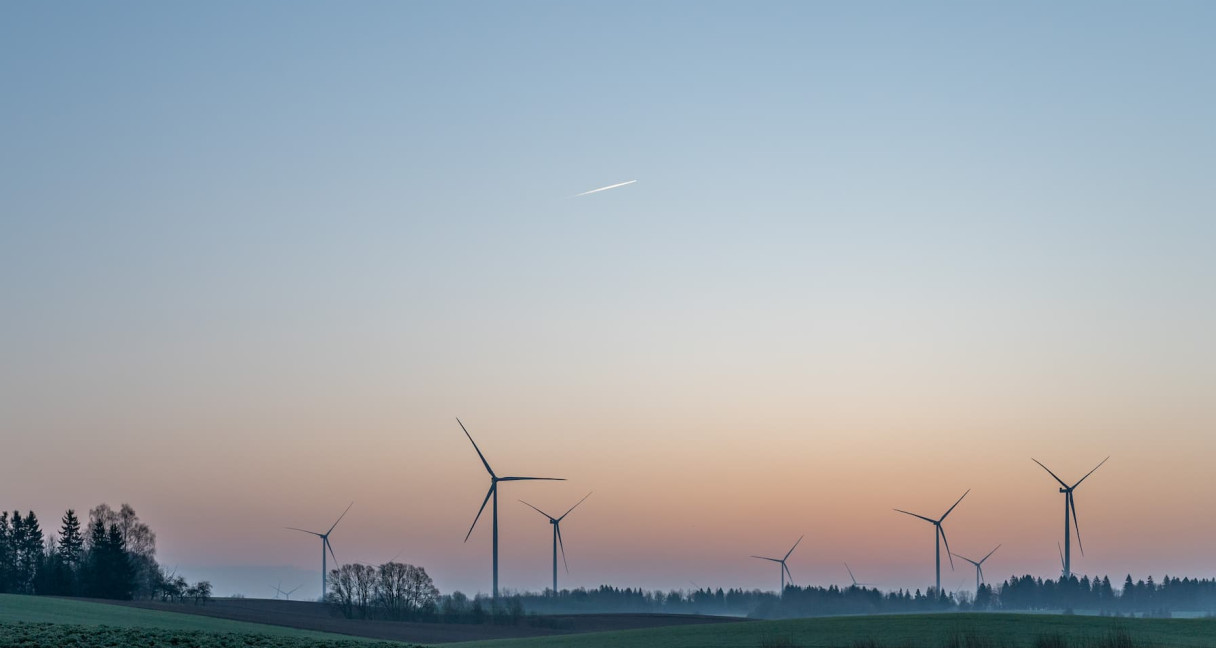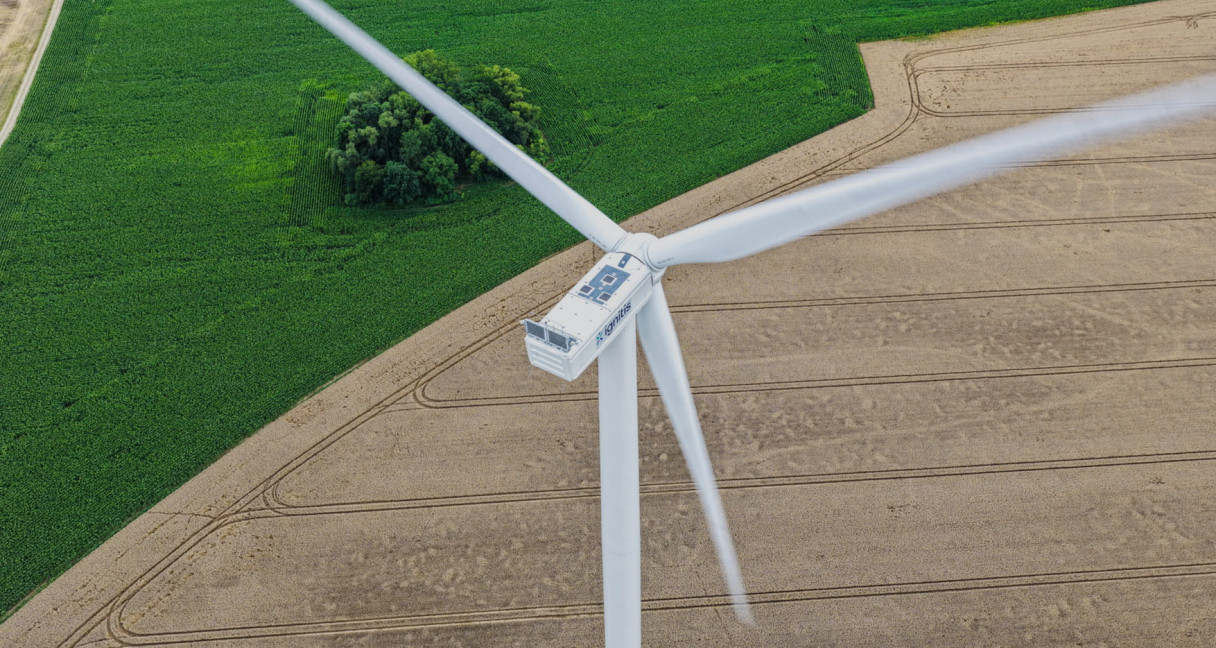Education initiative by Ignitis Renewables: a space for discovery and discussions
This summer, Ignitis Renewables, an international green energy company, invited people to learn more about renewables. During the education season that lasted over three months, the company visited eight regions of the country, from Kėdainiai to Šventoji, and created opportunities for thousands of people to experience the power of wind.
“Renewable energy is inseparable from communities, so it is important for us to be close to people – not only to build wind farms, but also to create a space for dialogue, learning and curiosity. The education initiative showcased that people are interested in the future of the energy sector, and our mission is to make it as relatable and clear as possible. The meetings with the people proved once again that cooperation is the best method for building trust, a strong sense of community and becoming good neighbours,” says Emilija Musteikytė, Communities Engagement Team Lead at Ignitis Renewables.
Energy projects and communities going hand in hand
For several years, Ignitis Renewables has been consistently building relations with local communities along its wind and solar farm development activities. The concept of being good neighbours has three facets: education, participation in communities’ lives and financial support for community projects. It is based on the best international practices followed by the energy sector leaders throughout Europe.
The education initiative creates opportunities to discuss how to balance the interests of energy companies and communities, the benefits of wind farms for local communities and the opportunities created by renewables. Such gatherings are often organised where new renewable energy projects are being planned or are already operating.
This summer, representatives from Ignitis Renewables shared their experience and knowledge at the summer events in different regions by educating people about wind and renewables. Over the summer season, they organised events at the districts of Kėdainiai, Kretinga, Kelmė, Mažeikiai, Pakruojis as well as events in Vilnius, Klaipėda, Palanga and Neringa. The communities found out that the energy sector can be relatable and clear if it is presented through experiences and discussions.
A space for learning and discussions
This season, under the education initiative, both children and adults had opportunities to learn about and feel the wind energy through creative workshops, interactive activities and new experiences. In most events, participants had the opportunity to put on VR goggles and “rise” to the top of a wind turbine. Such activities served a dual purpose of being a fun game and teaching about how wind power is produced.
The largest education initiative took place in Palanga, which was visited by around 18,000 energy enthusiasts over the course of a month. Resort residents and guests would be inclined to come with their families and friends because the energy sector was being presented in a simple and understandable manner. The month-long education initiative in J. Basanavičiaus Street was one of the highlights of the education season. Here, the total hours spent educating the public reached over 200 hours. The kite workshop and the electric bicycle, which allowed participants to observe how much energy is being generated while pedalling, were among the top attractions. The education programme at Palanga was supported by exhibitions from the Energy and Technology Museum, including a Tesla coil, a Van de Graaff generator and a plasma globe, which amazed visitors and encouraged them to learn how electricity works.
Over the summer, the education initiative was a part of many coastal events. In Klaipėda, Ignitis Renewables and Lithuanian Sea Museum organised a festival called Savos Bangos, which attracted city's residents and many guests from other parts of Lithuania. At the event celebrating sustainability, visitors were keen to participate in the available activities, educational programmes, discussions and art projects. Festival Vėjo Vėjai, held at the beach in Klaipėda, was yet another point of attraction. During the festival, children built small wind turbine models, took part in other related activities and, with the help of educators, learned how clean energy is produced.
At the start of September, the education initiative moved to Juodranktė. At the Sveika, Neringa festival, the Lithuanian Sea Museum's educational programme “Wind Laboratory: When Wind Becomes Power,” which took place at the Ignitis Renewables education space, received special attention. Visitors could test hands-on the simple tools that display the power of wind.
Similar educational activities were organised at the summer celebrations organised by local communities from different regions, from Pakruojis to Kelmė or Mažeikiai. There, the Ignitis Renewables team joined the communities to discuss, invite people to try creative activities and educate them about the wind energy. Meeting people is an opportunity to talk about the future of the energy sector in an environment familiar to them.





